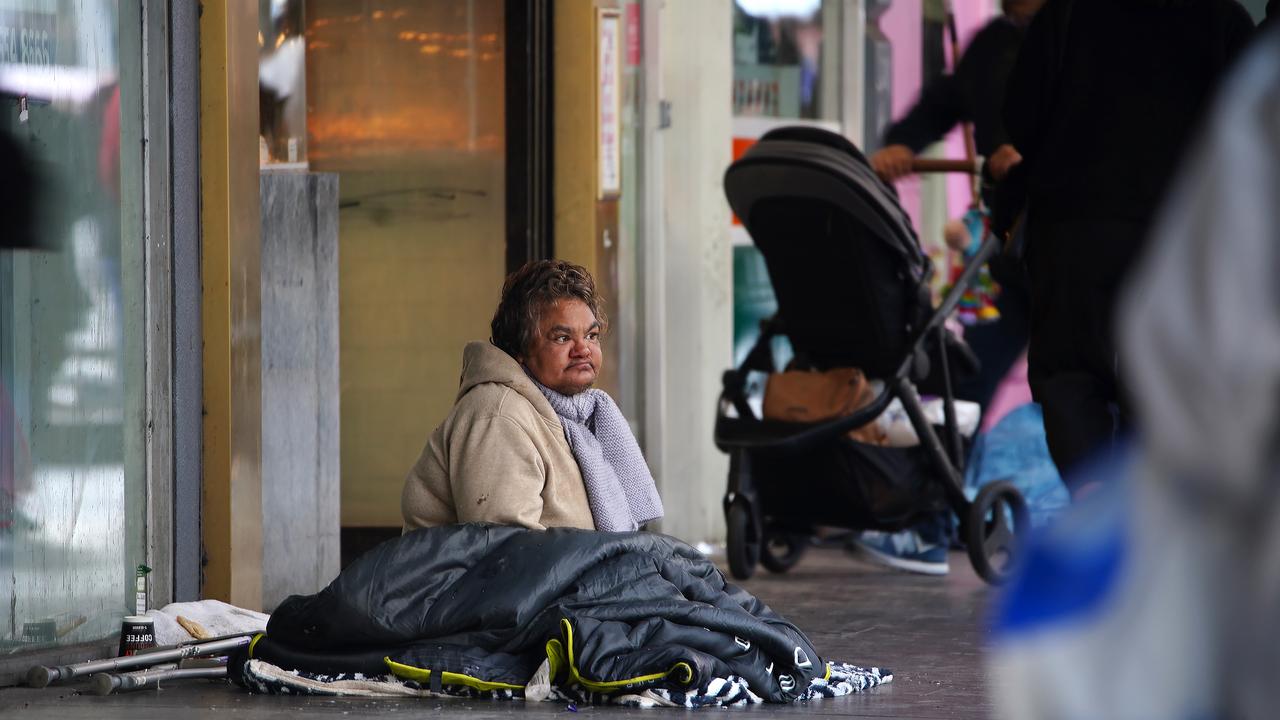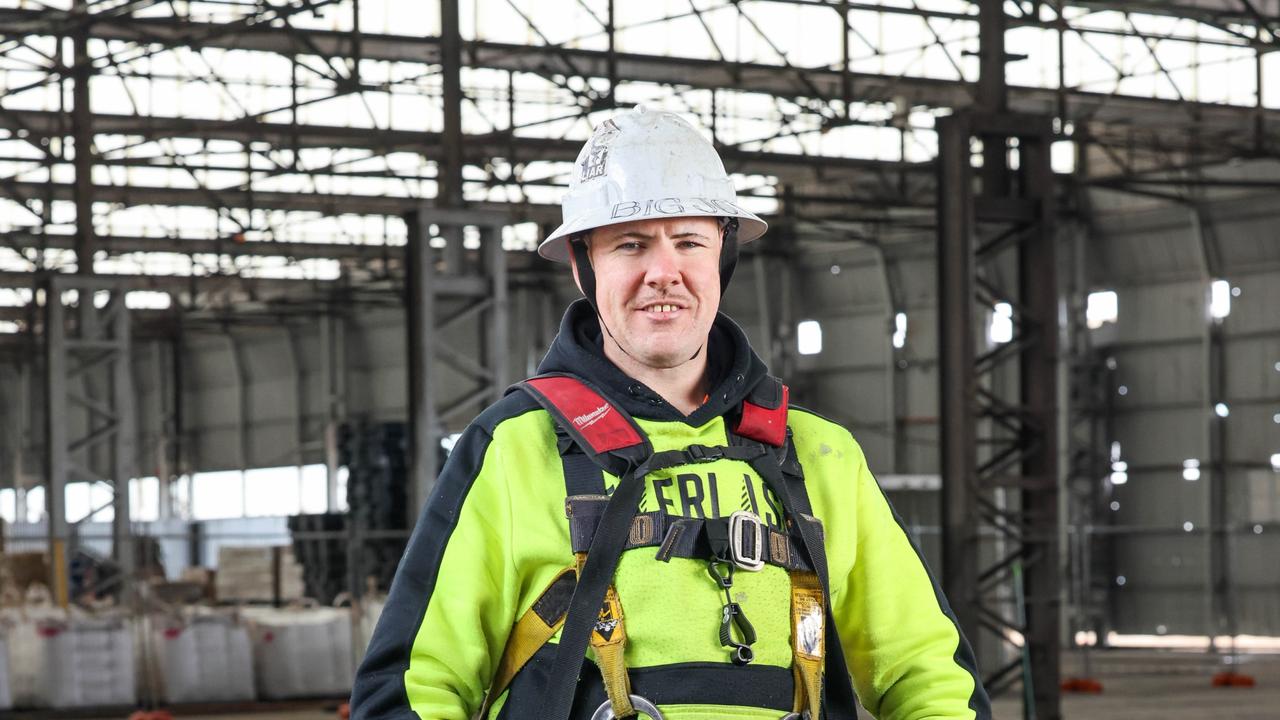Growing homelessness concern for unemployed Australian job seekers
There are fears that the rising cost of living and housing crisis will cause a new generation of homeless Aussies as people seeking help skyrockets.
Employment agencies are handing out sleeping bags, tents and swags as homelessness becomes an increasing reality for jobless Australians.
About 12 per cent of job seekers who found work over the past three months have experienced homelessness, exclusive research from Workskil Australia reveals.
The picture is even bleaker when those who have not yet secured work are taken into account. More than 15 per cent of those registered with the not-for-profit job provider having been homeless at some point while receiving unemployment benefits.

Sadly, finding a job does not always turn lives around – Australians who experience homelessness are 30 per cent more likely to fall out of work within the first six months of starting a role. The figure increases to 45 per cent for those under the age of 30.
“Having a roof over your head is a basic human need and without it, the prospects of finding a job are dire,” says Workskil Australia chief executive officer Nicole Dwyer.
“Not only does it impact your ability to be physically ready for work but it can place enormous stress on your mental wellbeing and motivation.
“With the rising cost of living and housing crisis, we have concerns homelessness will become the reality for more Australian job seekers in the year ahead and create a new generation of long-term unemployed.”
‘Absolutely desperate’
As the number of homeless job seekers increases, Workskil Australia has taken to providing tents, sleeping bags and swags to desperate Australians.
The organisation has spent more than $130,000 in the past year on the camping equipment, as well as rent assistance and crisis accommodation.
Dwyer estimates about 100 swags and sleeping bags have been handed out as a stopgap measure when all other temporary accommodation options have been exhausted.
“Often we will have someone come in, generally late on a Friday, and we just can’t find anything for them – we can’t get a caravan spot or a cabin, we can’t find a motel room and we’ve tried all other available housing,” she says.
“In an absolutely desperate measure, we provide swags for people to either camp out at a mate’s place or spend the night outside.
“It’s not ideal but it is, unfortunately, better than nothing.”
No home, no job
Joseph Paley, 37, works full-time as a roofer on commercial building sites. This is a far cry from his situation just a year ago, when he was sleeping rough and was unemployed.
“I had been a street kid in my teenage years so I knew how to live rough,” says Paley, who now receives a regular pay packet and lives in rental accommodation in Adelaide.
“It was the middle of July last year and it was freezing.

“I’ve slept at train stations, in playgrounds and anywhere that can provide some shelter, as well as having done plenty of couch surfing.
“Not having a home makes finding a job almost impossible. It’s very hard to make yourself presentable for an interview with no access to hot water, a change of clothes or even an alarm clock.
“My life has now turned around.”
No simple solution
With the nation facing extreme worker shortages, Mission Australia chief executive officer Sharon Callister says there’s often an expectation that homeless people should “just close their eyes and pick a job”.
“But if you find yourself homeless, your singular focus every day is, ‘where am I going to put my head down tonight?’ or ‘how am I going to find somewhere safe to stay?’ – especially if you have children or you are a woman,” Callister says.
“If that’s your focus, then how can you think, ‘gee, I need to update my CV or get better training (to be more attractive to employers)’.
“It’s never just as simple as, ‘well you should get a job’. If it was that simple, they would do it.”
An inability to provide a permanent fixed address can be a disadvantage to homeless job seekers, says Callister, adding many Australians would be shocked to learn the extent of homelessness within their community.
“Just six per cent (of homeless people) are what we call rough sleepers – the people you see in the park or … down the street,” she says.
“Ninety-four per cent of people that are homeless are the hidden homeless – they’re people that are couch surfing or living in motels and caravan parks and transitional housing.”
Callister fears more jobseekers, and also working Australians, will become homeless in the near future, amid an explosion in house and rental prices.
“The dream to have a stable home is just not there anymore,” she says.
Early prevention
Seeking help early is vital for Aussies at risk of homelessness.
Mission Australia chief executive officer Sharon Callister says homelessness can be avoided if the right supports, services and housing are in place, and if there’s a focus on prevention.
Of the people who approach Mission Australia services before they become homeless, 94 per cent have been supported to remain living in their home, she says.
“It’s different things for different people, but it could be that we help with rental arrears or provide (food or utility) vouchers so there’s more money for rent or we have support services that can help people to be a good tenant,” she says.
“We know that if we can provide this early intervention before people have lost their home that pretty much everybody that comes to us can be helped.”
Originally published as Growing homelessness concern for unemployed Australian job seekers


